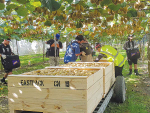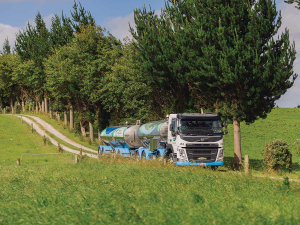With the annual value of the New Zealand agricultural machinery industry put at a conservative $1.3 billion, and agriculture in general being the key driver of NZ’s GDP, you’d think it would be easy to recruit youngsters into the industry.
The facts are the opposite: all land-based sectors report they are struggling to attract new entrants.
The machinery/technology sector seems to release new products on a weekly basis, for example, autonomous tractors guided by super-accurate GPS, milking platforms made from composite materials, and 200hp squeezed out of 4-cylinder diesel engines. Yet all this has little appeal to youngsters. Why?
Is there a misconception that working in ag machinery means being up to your armpits in the proverbial, working long hours or never getting time off during harvest? What makes potential employees look elsewhere?
Ron Gall, general manager of the Tractor and Machinery Association (TAMA), says this industry body is making members aware of the ‘have a trade, got it made’ initiative, and is developing links with training agencies MITO, Competenz and Careers NZ.
At the grassroots level, Rural News spoke to CB Norwood Distributors Ltd’s national retail aftersales manager Craig Sargent, who confirms that his company, a large importer and retailer, struggles to attract, train and retain technicians and mechanics. The company attends high school career events and National Fieldays, but has only limited success.
Similarly, importer and distributor Power Farming struggles to attract youngsters, so much so that about five years ago it set up its own apprenticeship programme in which entrants can attain the National Certificate in Motor Industry - Heavy Machinery Level 4 standard.
Trainees work in retail dealerships, developing the required skills while earning a wage, fees covered, and learn all aspects over three to four years. Successful graduates are offered a career path through the company that could lead to certified technician status, getting training in key disciplines like hydraulics or electronics, and further training at European supplier factories.
The company also offers graduate training for people wishing to enter the industry from places of tertiary education, and qualified in commerce, management or agribusiness. This 24-month scheme grounds trainees in all areas of the business in NZ and Australia, with mentoring and leadership. Career paths could lead to senior roles in sales and product and business management.
Lincoln University says it knows about the need for technicians in agricultural engineering, and it once actively pursued this in days gone by. The remnants of former agricultural engineering courses are there to see: redundant workshops and a range of machinery now outdated and irrelevant to today’s agriculture. The cost of bringing things up to date would be too high considering the uni’s financial woes, though some form of sponsorship by one of the larger machinery firms might help.
Recruitment, challenging enough for larger businesses, is tougher again for small-medium size enterprises. And now the ever-accelerating pace of mechanisation in agriculture means a need for a workforce highly skilled in a whole new range of disciplines is upon us.



















